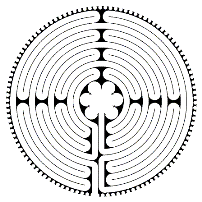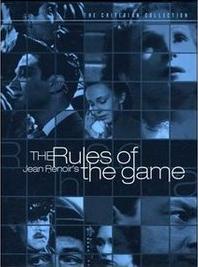The question was asked first on LinkedIn where other answers can be found. My answer was:
“Dear Ray,
Regardless of where we are on the bell curve of intelligence, we may still be as happy as we are capable of being because, as you correctly point out, being happy has little to do with what we have. From my experience it also has little to do with how much we know as well.
Both knowledge and ignorance may result in bliss. But bliss and happiness are not the same. Bliss is a form of exquisite contentment. Happiness, on the other hand, is best acheived by making a decision in the face of our acknowledged ignorance to take a future course of action, the outcome of which we can only hope for.
The decision is based on our trust of something that or, better, someone who, encourages us to move forward.
As Abraham Lincoln put it: Most folks are about as happy as they make up their minds to be. (See the LinkedIn members' discussion of success or happiness.) In some profound way, then, happiness defies intelligence because it is a form of wisdom that is neither rational nor irrational, but rather non-rational. The position we may be in when we first discover intellectual happiness is the laughter we enjoy when we reach in all seriousness an unsolvable paradox.
For example, consider for a moment the following sentence and see what it means: "This sentence is false." If it's true, it's false. If it's false, it's true. In this way, happiness, on an individual basis, will take us off the intelligence curve at almost any spot along it.
When it happens, it is a knowledge that cannot be taken away from the knower, nor explained to another who hasn't been there or who doesn't "get" the joke and the profound reason why we laugh.
In this regard, you may want to take a look at The Laughter Is on My Side by Soren Kierkegaard or Seinfeld and Philosophy: A Book about Everything and Nothing by William Irwin.
The unique character of risibility in humans has baffled many rationalists, so much so that men and women of common sense often laugh at their frequently observed predicament.”
What do you think?
Please include your comment here or contact me to discuss.
Thanks.
John Darrouzet
for people who want to make better decisions
The Decision-Maker's Path (tm)...
Quick Overview
Blog Archive
-
▼
2008
(132)
-
▼
March
(81)
-
▼
Mar 01
(36)
- How would you want to be approached by someone who...
- What is the best way to fire someone?
- The proverbial silver bullet -- does it exist?
- WHY: When it comes to trust, trust your gut.
- Questions and Answers on the Decision-Maker’s Path™
- What process do you use in decision making?
- How does one find happiness in the workplace?
- According to you, what is Success? Whom do you con...
- Help Me Understand the Need to Be Right
- How should September 11th be memorialized?
- Have you ever had a prophetic dream or vision?
- How do you think?
- Best book to read while on a business trip?
- What makes a movie trailer Great?
- Do you believe in the bell curve of intelligence a...
- How do you know when you are deceiving yourself?
- How much?
- In a world driven by commerce and profit, what doe...
- Role of Spirituality in your Professional Success?
- Are you part of the creative solution or an uncons...
- What is your integrity-based decision making proce...
- When did you know you were committed?
- A personal question: What is one of the most memor...
- How is it possible not to think too much?
- What are the sources of disruption to your ideal p...
- What makes you Unique? And, after all, what makes ...
- Why is change regarded as a 'soft' area?
- What do you consider are the key components/tools/...
- How can I raise a total of 200.000.000 euro for in...
- If "legally" given a choice...
- What determined your career path?
- What is the role of "spirituality" in your work life?
- Strategic planning (for small businesses)
- Why do organizations need managers AND leaders?
- If better leadership produces better results why d...
- How do you effectively integrate strategic and tac...
-
▼
Mar 01
(36)
-
▼
March
(81)
Discovering the centers ...

... of embedded insights
MOVIES FOR DECISION-MAKERS
Below are the cover images of movies for decision-makers, with clues to better decision-making.
Romero: the significant decision
"I know men and I tell you that Jesus Christ is no mere man. Between Him and every other person in the world there is no possible term of comparison. Alexander, Caesar, Charlemagne, and I have founded empires. But on what did we rest the creation of our genius? Upon force. Jesus Christ founded His empire upon love; and at this hour millions of men would die for Him."
--Napoleon
Decision-making: like climbing ...

a spiral staircase...one step at a time.
John Darrouzet
Special Counsel for Decision-Makers
Links
Followers
Subscribe To
********************* Advertising Disclaimer *********************
NOTE WELL:
Allowing the placement of the ads set out below should not be interpreted to constitute an endorsement or recommendation in any way by Special Counsel for Decision-Making or John Darrouzet of the content or programs referred to therein by the advertisers.
*****************************************************************************************************************************************
Allowing the placement of the ads set out below should not be interpreted to constitute an endorsement or recommendation in any way by Special Counsel for Decision-Making or John Darrouzet of the content or programs referred to therein by the advertisers.
*****************************************************************************************************************************************
*************************** Legal Notice **************************
Decision-Maker's Path (tm) trademark by, and blog content copyright © 2008, John Darrouzet. All rights reserved.

















































No comments:
Post a Comment